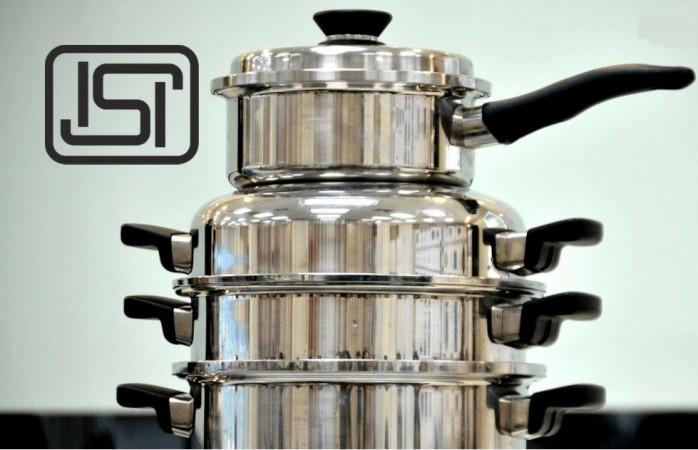
In a significant move to enhance kitchen safety and quality, the Central government of India has made it mandatory for stainless steel and aluminium utensils to conform to the Bureau of Indian Standards (BIS). The announcement was made on Friday by the Commerce and Industry Ministry, marking a significant step towards ensuring consumer safety and product quality.
The Quality Control Order, issued by the Department for Promotion of Industry and Internal Trade (DPIIT), Ministry of Commerce and Industry, on March 14, 2024, mandates the ISI mark for such utensils. The ISI mark, developed by BIS, is a certification mark that assures product quality and safety. This move is expected to enhance consumer confidence and drive manufacturers towards adopting best practices.
The order prohibits the manufacture, import, sale, distribution, storage, or exhibition for sale of any stainless steel or aluminium utensils that do not bear the ISI mark. Non-compliance with the order is a punishable offence, underscoring the government's commitment to consumer safety and product integrity.

IS 1660:2024 Standard and Its Key Elements
The key elements of the IS 1660:2024 standard include general requirements covering the overall quality and thickness of materials used, classification and material grades ensuring the use of appropriate grades as per IS 21 for wrought utensils and IS 617 for cast utensils. The standard also details the shapes, dimensions, and workmanship needed for high-quality utensils. Performance tests, including specific tests for aluminium lunch boxes to ensure durability and safety, are also part of the standard.
The BIS has recently formulated comprehensive standards for kitchen items, including IS 14756:2022 for stainless steel and IS 1660:2024 for aluminium utensils. These standards cover material requirements, design specifications, and performance parameters. The government believes that this move will enhance consumer confidence and drive manufacturers towards adopting best practices.
Quality Control Orders Across Various Industries
This development is not an isolated incident but part of a broader trend of the Indian government enforcing quality standards across various industries. For instance, on June 14, 2023, the Union Minister Piyush Goyal, Ministry of Commerce and Industry (MoCI) interacted with the representatives from the Indian Footwear Industry in New Delhi, Delhi, and decided to implement 'Footwear Made from Leather and Other Materials (Quality Control) Order, 2022' on 24 footwear products from July 1, 2023. It was also decided not to extend the deadline for complying with the mandatory quality standards and included Micro, Small and Medium Enterprises (MSME) in the ambit of the Quality Control Order (QCO). MSMEs were earlier exempt from QCO.
The QCOs are expected to help in increasing the production of quality footwear, and exports and establishing Indian brands in the global markets. For 5 standards which have been revised recently, it was also decided to give six more months time to small industries for complying with the order and accordingly, it will come into force from January 1, 2024. Micro units will get an additional year and should follow the new norms from July 1, 2024.
Related

















